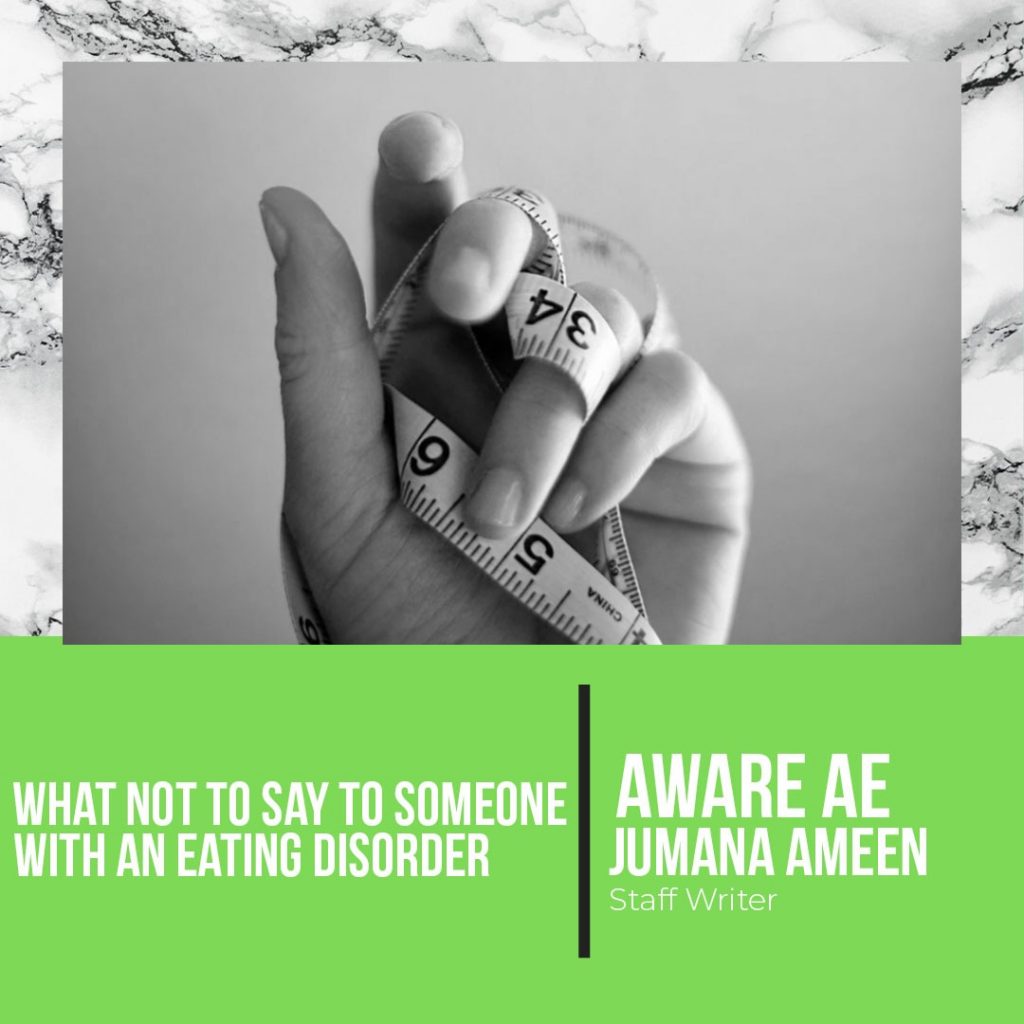Trigger warning: this article discusses eating disorders.
Eating disorders are a very sensitive thing to talk about and what you say matters very much as it can trigger an onslaught of negative emotions in the sufferer, leaving them feeling more helpless than ever. There are a number of things you should avoid saying as it may strengthen the ED or leave the person feeling lonely and powerless, which pushes them further away from recovery. Often, we may not think some of these things are inappropriate, but the damage they may inflict is severe. So, think twice before you speak to someone with an ED. Here are some of the things to avoid.
What not to say
Do not make comments about their food. People with eating disorders are often conscious and believe that people are judging them for what they eat. Any such comments only confirm their beliefs. Another thing to steer clear from is talking about their weight or appearance. You may mean it for their good but telling a person with an ED that they look well or healthy will only lead them to assuming that they look fat because the word “healthy” does not have a positive connotation to someone with an eating disorder due to their distorted body image. At the same time, do not comment that they look thin either as this can reinforce their ED. It promotes the idea of being thin as being something positive or ideal and also provokes the idea that their unhealthy eating habits are achieving results. Do not comment on the healthiness of food. Patients with ED will have foods that they classify as “bad” or “good”; hence, doing so will only fuel their list. The belief that needs to be adapted by them is that food is food, and all foods hold nutritional value. A lot of people say things along the lines of “you have a lot of willpower” or even praise them, which reinforces their disorder. EDs are not about willpower but rather self-loathing. It is not a new fad diet but an illness that impacts and possibly destroys their quality of life. One thing you should never say is, “why don’t you just eat?” It is not that simple. EDs are a mental disorder due to an imbalance of hormones, amongst many other things. It is not in the control of the person with the ED. This just makes the person suffering feel incompetent and helpless as though they are broken and in need of fixing.
What to say instead
Start by asking them if they are doing well and remind them that you are there for them. This helps them know that they have the support if needed and reduces the feeling of helplessness that can come with the disorder. One phrase that may be extremely comforting to tell them is that no one is perfect, and to go easy on themselves. Ask them if they would like to see someone who can help them through this. Be gentle about the matter and tread carefully. Lastly, tell them you will love them no matter what and that this hardship does not define them.
